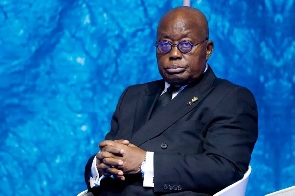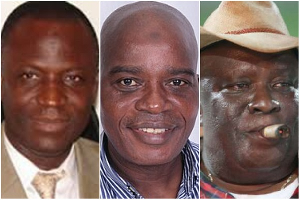Ghana is on the cusp of a default as the grace period on a $40.6 million coupon due on its dollar bond maturing in 2026 expires at the end of Friday December 17, 2023.
The coupon was originally due on January 18 and is the first since the West African nation unilaterally suspended payments on most of its external debt in December.
When asked if the government intended to pay, a finance ministry spokesperson sent a copy of the December 19, 2022 press release announcing the suspension of payments on eurobonds, declining to comment further.
Ghana has been engaging investors since November to restructure about $30 billion of its $46 billion in local and international debt. It recently completed the first part of a domestic restructuring, with investors exchanging 83 billion cedis ($6.7 billion), or 64% of holdings, for new securities, against an overall target of 80%.
It aims to start “substantive” discussions with international bondholders and their advisers in coming weeks, Minister of Finance Ken Ofori-Atta said Thursday [February 16] in parliament.
“They are in default,” Kevin Daly, a London-based investment director at abrdn, which is part of the bondholders’ committee. “They said we are going to stop paying coupons on all their bonds, that is part of your restructuring process.”
Africa’s second-biggest gold producer becomes only the fourth Sub-Saharan country to default on an international bond payment, after Zambia, Mozambique and Ivory Coast.
Ghana will commit soon to restructuring talks with eurobond holders, Daly said. As much as $13 billion of dollar bonds are up for reorganization, according to data compiled by Bloomberg. Private creditors may take a haircut of as much as 30% on the principal and be asked to forfeit some interest payments, a deputy finance minister hinted in November. The private lenders should brace for more losses than bilateral creditors, Ofori-Atta said.
Bilateral Debt
Separately, the government has offered to reschedule payments on bilateral debt without principal haircuts, according to sources familiar with the matter, sparing this segment of creditors from some of the losses others face.
Eurobond holders will be asked to accept losses, the people said, asking not to be named because they are not authorized to speak publicly on the matter.
A finance ministry spokesperson said ongoing negotiations would determine the offer, declining to comment further on the proposal.
Ghana’s softer approach to bilateral lenders is a setback for eurobond investors who have been asking for equal treatment in the restructuring after the government said in December it’s stopping payments.
The West African nation is racing against time as it seeks to win concessions from creditors to unlock a $3 billion International Monetary Fund loan by March. The nation wants to reduce liabilities from an IMF estimate of 105% of gross domestic product in 2022 to 55% by 2028.
Watch the latest edition of BizTech and Biz Headlines below:
Business News of Saturday, 18 February 2023
Source: Bloomberg













